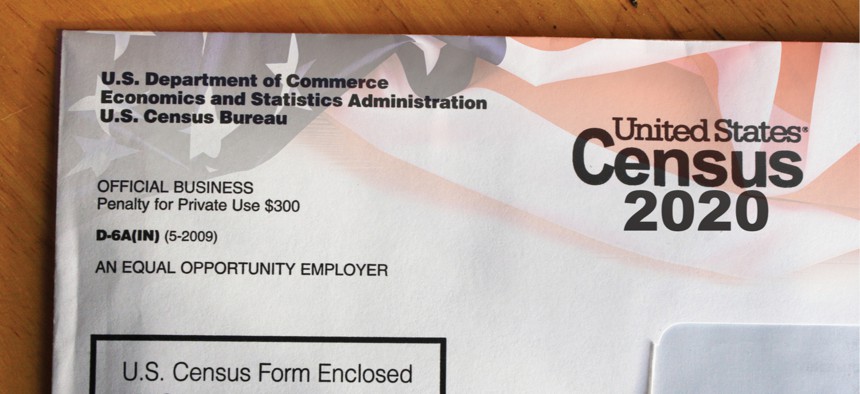Trump Opts for Federal Records Analysis Over Citizenship Question on 2020 Census

Shutterstock

Connecting state and local government leaders
The decision ends weeks of turmoil over the census matter, with the president ordering government agencies to turn over records to the Department of Commerce that will enable the agency to count the number of non-citizens in the United States.
President Trump announced Thursday he will no longer seek to include a question about citizenship on the 2020 census, instead ordering a sweeping analysis of federal government records to determine the number of non-citizens living in the country.
The concession ends weeks of turmoil following a U.S. Supreme Court ruling that rejected the Trump administration’s justification for the question and sent government lawyers scrambling to assert a new legal rationale for its inclusion.
“We are not backing down on our effort to determine the citizenship status of the United States population,” Trump said, indicating the administration would instead instruct federal agencies, including the Department of Homeland Security and Social Security Administration, to share relevant data with the Department of Commerce for the count.
“I’m hereby ordering every department and agency in the federal government to provide the Department of Commerce with all requested records regarding the number of citizens and non citizens in our country,” Trump said during a press conference at the White House on Thursday with Attorney General William Barr and Commerce Secretary Wilbur Ross. “They must furnish all legally accessible records in their possession immediately. We will utilize these vast federal databases to gain a full, complete and accurate count of the non-citizen population.”
The June ruling by the high court called Ross’s justification for inclusion of a citizenship question “contrived” but did not rule out the administration from asking residents whether or not they are citizens.
But the timing of the opinion made it difficult for the administration to provide new justifications to address questions raised by the court before the Census Bureau began printing the forms in early July.
Days after the court issued the opinion, Ross announced the Census Bureau had started the process of printing the 2020 census forms without the citizenship question. But Trump continued to publicly push for its inclusion, tweeting the next day that he was "absolutely moving forward” with it on the census.
“Knowing this information is vital to formulating sound public policy, whether the issue is healthcare, education, civil rights or immigration we must have a reliable count of how many citizens, non citizens and illegal aliens are in our country,” Trump said on Thursday.
The census is conducted once every decade and has implications for congressional representation and the flow of billions of federal dollars to states. Along with advocacy organizations, state attorneys general led the legal fight against including the citizenship question in 2020, arguing it would reduce participation by immigrant families and, therefore, result in an inaccurate count that shortchanged communities with large immigrant populations.
A citizenship question has not been included on the census questionnaires since 1950.
During the legal battle over the question the Trump administration said collection of that data would enable the Justice Department to better enforce the Voting Rights Act, which protects minority voters. But Barr on Thursday suggested that one reason for obtaining the data would be for “apportionment purposes,” meaning the possibility that political districts could be divided based on citizens instead of the total population.
Barr said the review of information already in the government’s possession would “yield the best data the government has had on citizenship in many decades.”
Andrea Noble is a staff correspondent with Route Fifty.

NEXT STORY: 'Deaths of Despair' Theory Overlooks Other Factors, Researchers Say




